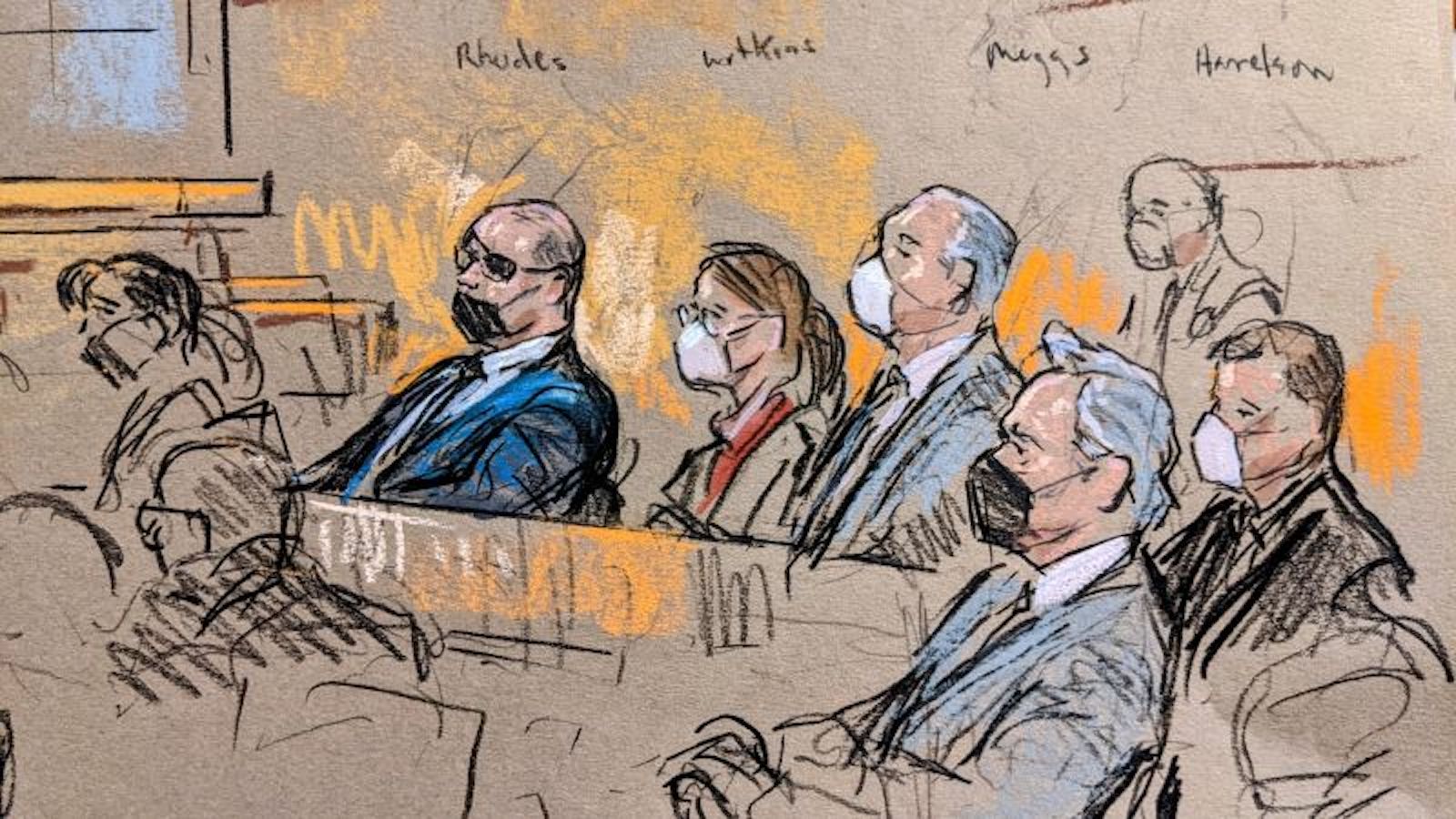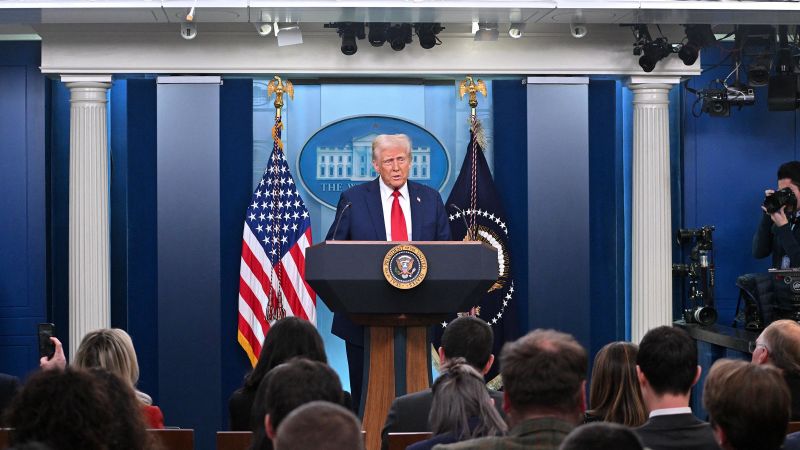(Trends Wide) — A Washington jury convicted Oath Keepers leader Stewart Rhodes and his partner Kelly Meggs on Tuesday for seditious conspiracy for their role in the assault on the United States Capitol on January 6, 2021.
While the jury split its decision on several other charges brought against the five alleged members of the right-wing militia group, even two guilty verdicts on the seditious conspiracy charge marked a significant victory for the Justice Department and were hailed as vindication. by the Select Committee of the House of Representatives investigating the insurrection.
The historic criminal trial, the first of three seditious conspiracy cases scheduled to begin this year, was an important test of the Department’s ability to hold the January 6 protesters accountable.
The charge has rarely been brought in the century and a half that the statute and its predecessors have been on the books. By using it against members of the Oath Keepers, the Department is expressing that it views the breach of the Capitol as a serious threat to the functioning of the US government.
Prosecutors had argued that the attack on the US Capitol was more than just a political protest that got out of hand, but rather a violent attack on the seat of American democracy and an effort to keep Joe Biden out of power. the Oval Office by any means necessary.
“The FBI will always uphold the rights of all citizens who peacefully engage in First Amendment-protected activity, but we and our associates will continue to hold those who engaged in illegal acts accountable in connection with the January 6, 2021 siege of the US Capitol. USA,” FBI Director Christopher Wray said in a statement Tuesday.
The charges for which the members of Oath Keepers were convicted
The Justice Department alleged that members of the Oath Keepers — Rhodes, Meggs, Jessica Watkins, Kenneth Harrelson, and Thomas Caldwell — conspired to forcibly stop the peaceful transfer of presidential power from then-President Donald Trump to current President Joe Biden and conspired to attack the US Capitol
Jurors considered 10 counts against the five defendants, including three counts of conspiracy, obstruction of electoral college vote certification and document tampering. The defendants were convicted on multiple counts and all five were found guilty of obstructing an official proceeding. The charge, like the seditious conspiracy charge, carries a maximum prison sentence of 20 years.
It remains to be seen how long each defendant will serve, as Judge Amit Mehta could hand down a sentence exceeding 20 years or decide to sentence them to much less than the maximum allowed.
Mehta told the court that four of the defendants, including Rhodes, will remain behind bars. Only one defendant, Caldwell, had been on probation.
Sentencing hearings generally occur 90 days after a verdict is reached.
Lawyers for the defendants said they were disappointed with the verdict but believed their clients had received a fair trial.
“I think we got a fair trial,” James Lee Bright, a Rhodes lawyer, told reporters outside the courthouse. However, Bright added that he believed the verdict “could have been substantially different” had the trial been held outside of Washington.
the trial

Kelly Meggs, Stewart Rhodes, Kenneth Harrelson, Jessica Watkins and Thomas Caldwell (Credit: Marion County Sheriff’s Office/Reuters/Getty Images/Montgomery County
As the verdict was read in the federal courtroom, the five defendants expressed little emotion. Rhodes, who founded Oath Keepers in 2009 and has led the group ever since, kept his head down as he wrote notes to one of his lawyers.
The members of the prosecution congratulated each other after the jury had left, but declined to comment on the verdict. They said Rhodes, 57, had stood in front of the Capitol on Jan. 6 acting like a “general” when his supporters stormed the building.
Meggs, 53, is the leader of the Florida chapter of the Oath Keepers and, according to the government, led the infamous Oath Keepers “stack” formation inside the Capitol on Jan. 6. Harrelson, 41, acted as Meggs’ right-hand man on the day of the attack.
Watkins led her own militia in Ohio before joining the Oath Keepers after the 2020 election. Prosecutors say the 40-year-old woman, who is transgender, allegedly entered the Capitol with Harrelson and Meggs and coordinated with Caldwell in the weeks prior to the attack.
Caldwell, a 68-year-old man who testified that he is not a member of Oath Keepers, allegedly helped organize the armed rapid reaction force stationed outside Washington on January 6. He also hosted the Oath Keepers at his Virginia farm, prosecutors said, and communicated with Watkins during the riot.
verdicts
The trial began more than seven weeks ago and featured hundreds of messages, audio recordings, and videos of the defendants’ revolutionary rhetoric following Biden’s 2020 presidential victory and their actions as they moved across the Capitol grounds during riots. .
Defense lawyers argued that there was no uniform plan among the group, that the far-right militia group Oath Keepers only attended the “Stop the Steal” demonstration — the premise of which was that the election was stolen — on the day of the riot to provide security details for the leaders, and that the incendiary recordings of the defendants were nothing more than “locker room talk.”
These were the verdicts of the jury:
COUNT 1: Seditious conspiracy
The five defendants were accused of planning to use force to stop the legal transfer of presidential power on January 6.
Rhodes: CULPABLE
Meggs: CULPABLE
Harrelson: NOT GUILTY
Watkins: INNOCENT
Caldwell: INNOCENT
COUNT 2: Conspiracy to obstruct an official proceeding
All of the defendants faced charges alleging that they conspired together to prevent the Electoral Congress from certifying the votes inside the Capitol.
Rhodes: INNOCENT
Meggs: CULPABLE
Harrelson: INNOCENT
Watkins: CULPABLE
Caldwell: INNOCENT
COUNT 3: Obstruction of an official proceeding
In addition to being charged with conspiring to obstruct an official proceeding, all were found guilty of committing the act.
Rhodes: CULPABLE
Meggs: CULPABLE
Harrelson: CULPABLE
Watkins: CULPABLE
Caldwell: CULPABLE
COUNT 4: Conspiracy to prevent an officer from performing his duties
The indictment alleged that the five defendants worked together to “prevent by force, intimidation, and threat…members of the United States Congress from performing their duties,” i.e., certifying the results of the 2020 election. .
Rhodes: INNOCENT
Meggs: CULPABLE
Harrelson: CULPABLE
Watkins: CULPABLE
Caldwell: INNOCENT
COUNT 5: Destruction of government property and aiding and abetting
Meggs, Harrelson and Watkins, according to prosecutors, were part of a crowd that stormed through the Capitol rotunda doors on January 6.
Meggs: INNOCENT
Harrelson: INNOCENT
Watkins: INNOCENT
CHARGE 6: Civil disorder and complicity
The jury considered whether Watkins interfered with law enforcement when he allegedly joined a crowd near the Senate floor, pushed and yelled at officers guarding the chamber doors.
Watkins: CULPABLE
CHARGES 7, 8, 9 and 13: Manipulation of documents
Rhodes, Meggs, Harrelson and Caldwell all faced charges for allegedly deleting messages and pictures from their phones or social media accounts after January 6. Prosecutors also alleged that Rhodes instructed other Outh Keepers to delete the messages after the riot.
Rhodes: CULPABLE
Meggs: CULPABLE
Harrelson: CULPABLE
Caldwell: CULPABLE





